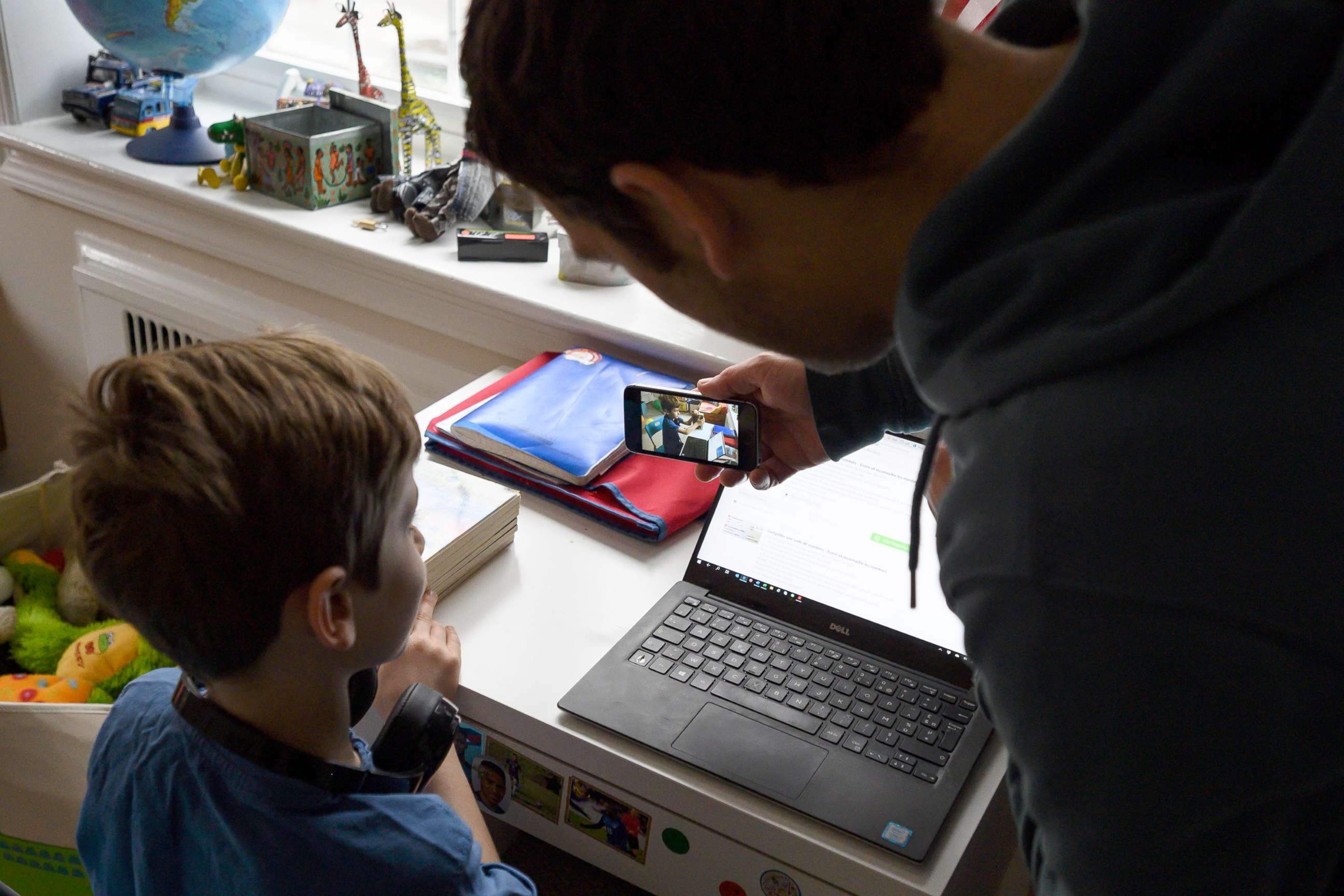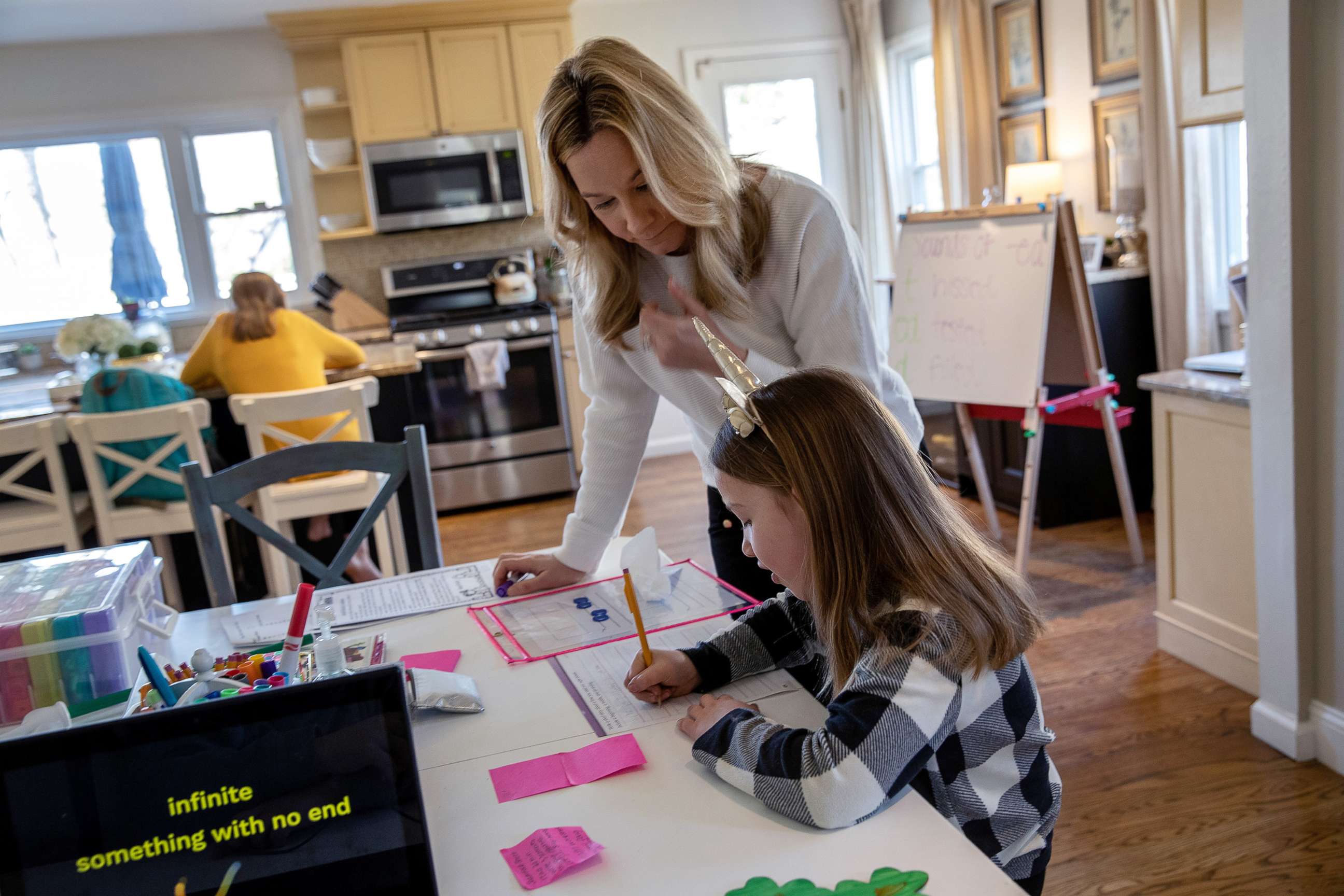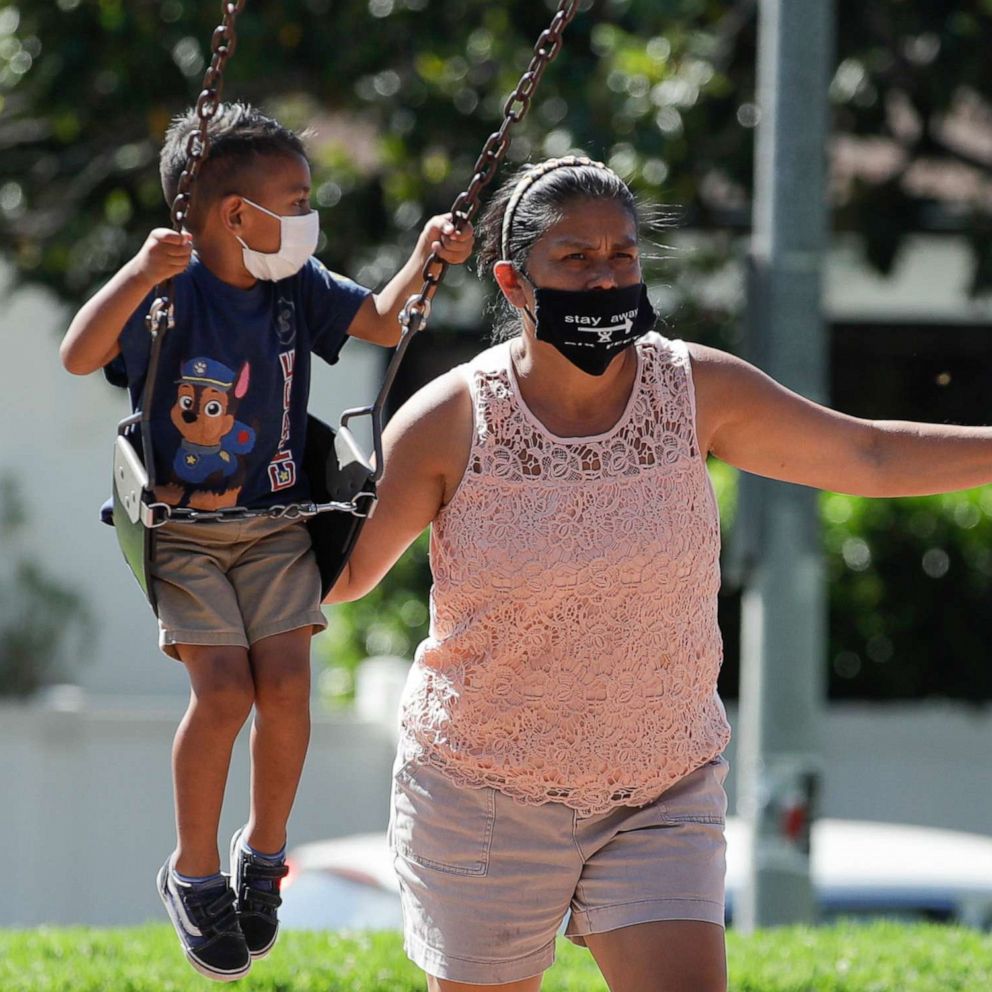7 tips for parents to mentally prepare their children, and themselves, for an upended school year
Focus on skills rather than on assignments, experts tell "GMA."
When Diane Borsvold's husband and children tested positive for COVID-19 in June, it was her 10-year-old son, M.J., who suffered the most emotionally.
"He broke down crying," Borsvold told "Good Morning America." "We told him that he was having these symptoms and probably had COVID-19 as well and he was like, 'No, I don't have it. I don't have it.'"
M.J., a fifth-grader in San Antonio, Texas, said he remembers having fears he would die when he tested positive for COVID-19.

"I had so many thoughts to my mind," he told "GMA." "The biggest one was, 'Am I going to survive this?' That was my biggest fear, of dying or being rushed to the hospital."
M.J. and his immediate family members all recovered from the virus but said his anxiety has stayed as friends and family members continue to be diagnosed and he worries about the school year ahead.
Across the country, millions of students are returning to newly-designed classrooms with new rules, like social distancing and mask wearing, or they are spending the start of the school year in front of a computer screen at home, doing virtual learning, or doing homeschooling.
Either way, the changes and uncertainty caused by the coronavirus pandemic are already having an impact on children's mental health, data shows.
At the end of the last school year, 29% of parents said their child was "already experiencing harm" to their emotional or mental health because of social distancing and closures, according to a May Gallup poll.
"Socialization is important to kids' development because it is a part of their normal, day-to-day activities," said Kenya Hameed, PsyD, a neuropsychologist at the Child Mind Institute, a national non-profit organization focused on kids' mental health. "That break from normalcy is the part that is having the negative impact on kids."
As the new school year begins, children and parents alike have to see the pandemic as more of a "chronic issue," and not something that was as short-term as it seemed in the spring. With that understanding, the way they approach the new school year needs to change, too, according to Hameed.
Here are seven tips from Hameed and Dr. Harold Koplewicz, president and medical director of the Child Mind Institute, on how parents and students can prepare mentally for the school year ahead.
1. Create an at-home learning space for your child.
Kids need a dedicated place for learning and school work in the house, even if it is a dining room table that becomes a classroom every morning, according to Koplewicz.
"They need a place where, 'This is school, this is different than any other part in the house,'" he said.

2. Focus on skills rather than assignments.
Parents should work now to figure out how their kids learn, whether it is that they work fast or work slowly or work outside-the-box, and adjust accordingly, recommends Koplewicz.
He also stressed that parents should remember the country is in the middle of a pandemic and to give themselves, and their kids, some slack, focusing on the skills they're learning rather than on if they are following each assignment precisely.
"If the assignment isn't working well for your child in the format their teacher presented it, it's appropriate to adjust it," said Koplewicz. "For example, if your child absolutely refuses to write out spelling words on a worksheet from the teacher but they're happy to recite them while jumping rope, you know what, COVID. Let's not sweat the small stuff."
3. Develop a social life with your kids.
Being without friends both inside and outside the classroom is difficult for kids, so parents need to recognize that and get creative, according to Koplewicz.
"Is there a family they trust who is close to them who is following all the rules and their children could have a social interaction with?" he said. "If not, how can your family [socialize] with screens?"
Koplewicz said screen time can be beneficial for doing things like having a FaceTime or Zoom pizza party with another family or friend, but also make time for family activities like movie nights, board games and cooking.
Parents should also use this time to develop a social life not just for their kids, but with their kids and make the relationships and the qualities of interactions at home more meaningful, according to Hameed.
"A lot of times kids gravitate to their friends because they feel like their family really doesn't understand them," she said. "By working on trying to have positive interactions in the home, that's going to have a positive impact on a kid's mental health."
4. Stay active with your kids.
Kids who are doing virtual learning will miss recess time and physical education classes at home, while kids who are attending school in person may also miss out due to social distancing guidelines.
Koplewicz recommends taking older kids on a jog or walk in the morning or evening, or going to the high school track as a family, if social distancing there is possible.
For younger kids, Koplewicz recommends taking a break three times a day to do 10 jumping jacks.
"That physical activity is really important," he said.
5. Practice gratitude and focusing on the present.
Koplewicz recommends parents get in the habit of asking their kids at dinner what they are grateful for in order for families to step back from day-to-day life and say, "Let's remember we're lucky."
Both Koplewicz and Hameed say that when it comes to talking about the pandemic with kids, conversations should be age-appropriate and should focus on what kids can control and what is happening in the moment, not what may or may not happen the rest of the year.

"Most children are upset by uncertainty and one of the problems we have right now in our nation is that no one is telling us what the map is," said Koplewicz. "If there is uncertainty of, 'No there is not school. Yes there is school. We have a vaccine. We don't have a vaccine. The numbers are going down. The numbers are going up,' you have to protect your child from that uncertainty."
"Parents should focus on sending main messages to kids on things like safety and really understanding hand washing and when they need to wear a mask, when they need to social distance and explaining why, and I think leave it at that," added Hameed. "Parents don't need to go into the nitty gritty details about how high the count is in their city or their state."
Koplewicz said for the sanity of both parents and kids, families can focus on what is happening week by week or even month by month.
"Let's not discuss that there's no school in person for the year," he said. "Instead, talk about how you know you're going to have to do this in September and here's how we can prepare and we can discuss at the end of the week what's going to happen next week."
6. Show your kids how you're processing emotions.
You can help your kids develop more resilient reactions to COVID-10 by leading by example, according to both Hameed and Koplewicz.
"Anxiety is very contagious, so teaching yourself how to manage your own anxiety is very important," said Koplewicz. "And being able to tell your kids that you're having a bad time and then showing them how you can get back control is important."
"It's an OK thing for parents to tell their kids, 'You're going to have to give me 20 minutes because I want to call my mom,' or, 'I want to read for 20 minutes,' or 'I want to walk for 20 minutes,' and then come back and show them how you feel," he added.
7. Be smart with screen time.
Parents can release themselves of the guilt of allowing their kids more screen time during the pandemic, recognizing that part of it is being used for socialization, according to Koplewicz.
Still, he said it is important for parents to restrict and monitor their child's screen time and break it into increments throughout the day.
"I would say, 'Now you have the time to do whatever you'd like, your free play, on the internet for the next half-hour,' and then I'd go back and say, 'And now you're going to turn it off, and you can have another half hour at eight o'clock,'" he said. "I would just be very careful about the leakage, not to let 30 minutes spill into 45 minutes or an hour."







